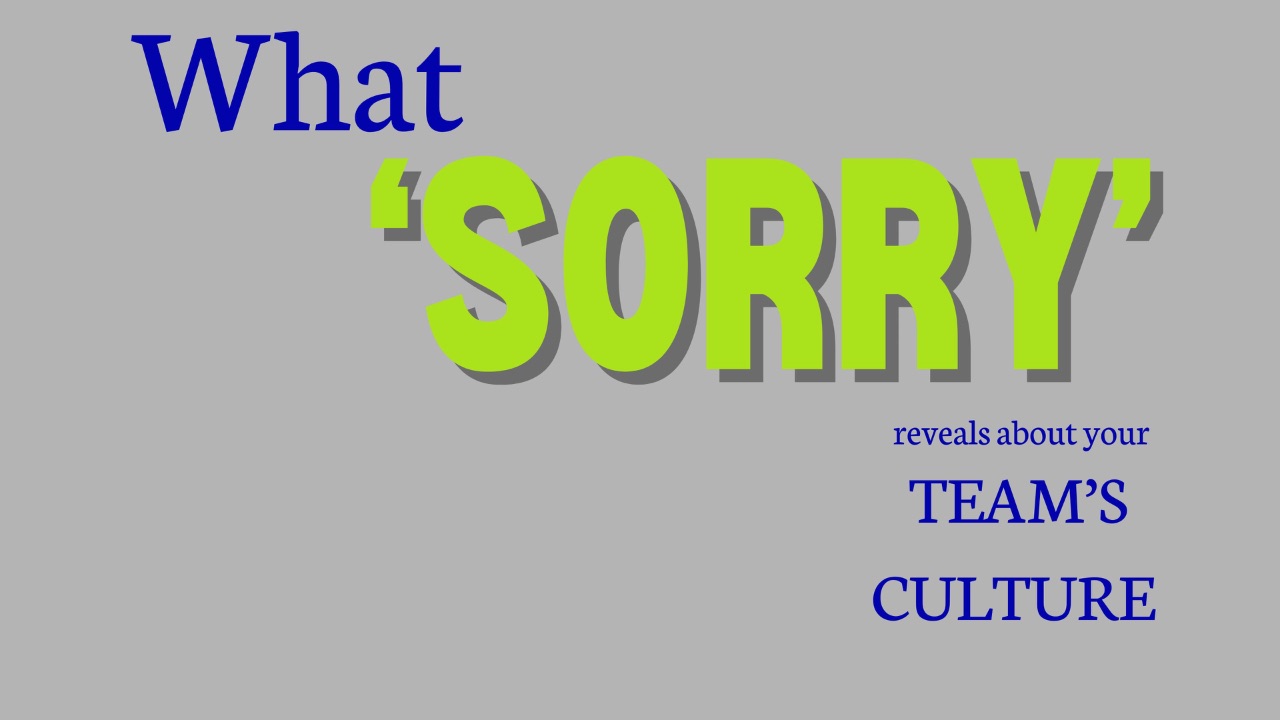
What “Sorry” Reveals About Your Team’s Culture
Sep 09, 2025In a recent post, I shared that you can learn more about a team’s performance by observing it than you ever could through surveys or reports.
Here’s a simple example: listen to how a team uses the word “sorry.”
In many teams, “sorry” is one of the most overused words.
-
Missed a deadline? “Sorry.”
-
Late to a meeting? “Sorry.”
It becomes a reflex. A polite filler. And over time, that habit says a lot about culture.
When “Sorry” Signals a Problem
If “sorry” is being used constantly and without thought, it often points to:
-
A lack of respect for each other’s time
-
Low standards of follow-through
-
A culture where mistakes are acknowledged but not learned from
Most of the time, this isn’t intentional. But it creeps in when leaders aren’t paying attention to how people interact.
How High-Performing Teams Use “Sorry” Differently
In strong cultures, “sorry” carries weight. It’s not about perfection—it’s about being deliberate.
When someone says “sorry” in a high-performing team, it comes with:
-
Ownership: “I missed this because I…”
-
Learning: “Next time I will…”
-
Change: “Here’s what I’ve done to make sure it doesn’t happen again.”
In other words, “sorry” becomes a moment of accountability. It’s not just an apology—it’s a commitment to do better.
The Leadership Lesson
Words matter. But what matters most is the intention and action behind them.
That’s why I always prefer to start with observation. By listening to how a team interacts—noticing the language, tone, and patterns—you can spot the cultural signals that dashboards miss.
So ask yourself: how does your team use “sorry”?
Is it just a reflex… or a real act of accountability?
The Transformation Leaders Can Create
Through leadership coaching and emotional intelligence training, I help leaders shift their team cultures from reflexive habits to intentional behaviours.
When leaders and teams take accountability seriously, they notice:
-
Higher respect across the group
-
Stronger follow-through and reliability
-
A culture of learning and growth instead of excuses
-
Better overall performance
This is the difference between a team that drifts—and one that thrives.
Ready to Build a Culture of Accountability?
If you want your team to stop running on autopilot and start working with intention, let’s talk.
Book a coaching call with me today
or learn more at hooper-rees.com
Don’t underestimate the power of a single word. The way your team says “sorry” could be the key to unlocking accountability, trust, and higher performance.